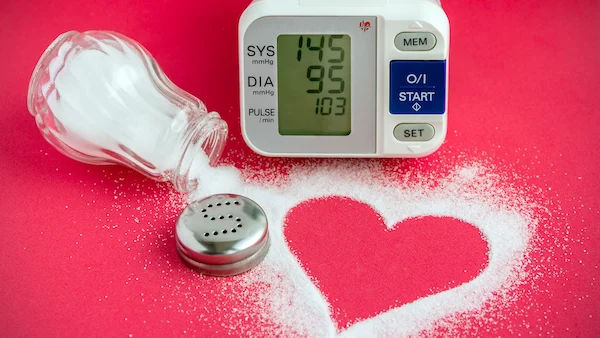- Male
- 37 Years
- 20/02/2025
I'm dealing with anxiety that's causing me to have chest pain, and sometimes my blood pressure goes way up. I've already done an ECG, 2D Echo, and some blood tests because of the pain. Could you take a look at my Echo report and give me some advice? I'm really worried about my health right now.
Answered by 1 Apollo Doctors
Based on your symptoms and tests, it seems like you are experiencing anxiety-induced chest pain and fluctuations in blood pressure. It's important to manage your anxiety to alleviate these symptoms. I recommend starting with an anti-anxiety medication such as Xanax (alprazolam) 0.5mg twice daily. Additionally, to help with chest pain, you can take Ibuprofen 400mg as needed for pain relief. It's also important to practice relaxation techniques such as deep breathing exercises and mindfulness meditation to help reduce anxiety levels. Regular exercise and a healthy diet can also contribute to overall well-being.
Dr. Ranjith Suggests...
Consult a Cardiologist
Answered 04/07/2025
0
0

Ask Apollo
AI powered Health Chatbot
-
ECG, 2D Echo, and Blood Test Review:
- I cannot review specific medical reports or images directly. Please consult your healthcare provider for a detailed analysis.
-
Chest Pain and Anxiety Management:
- Consider discussing anxiety management strategies with your doctor, which may include therapy or medication.
- Monitor your blood pressure regularly and maintain a record to share with your healthcare provider.
-
General Advice:
- Ensure a balanced diet, regular exercise, and adequate sleep to support overall cardiovascular health.
- Avoid caffeine and alcohol, which can exacerbate anxiety and blood pressure issues.
Answered 10/09/2025
0
0

More Cardiology Health Queries
View allI've been noticing my heart beating really noticeably when I'm lying down. My ECG came out normal, and the doctor mentioned it's palpitations and gave me some medication for it. Any idea how long it might take before the palpitations go away?
The duration for palpitations to improve can vary depending on the individual and the specific medication prescribed. However, in general, you may start to notice an improvement in your palpitations within a few days to a couple of weeks after starting the medication. It is important to take the medication as prescribed by your doctor and follow up with them for any necessary adjustments.
Answered by 1 Apollo Doctors
I'm taking Concor Cor 2.5mg and I'm worried about stopping it. Is there any chance it could be dangerous to quit suddenly? I really want to know if there's a safe way to completely stop using it without any risks.
Concor Cor 2.5mg is used to treat high blood pressure and certain heart conditions. It contains the active ingredient Bisoprolol. Abruptly stopping Concor Cor can lead to rebound hypertension and other serious complications. To safely withdraw from Concor Cor, it is important to gradually reduce the dosage under the supervision of a healthcare provider. They may recommend tapering off the medication slowly over a period of time to minimize the risk of withdrawal symptoms.
Answered by 1 Apollo Doctors
I've been thinking about getting a smartwatch since they can track heart rate and blood pressure, but I'm a bit skeptical. Do these gadgets actually give accurate readings for heart rate and BP, or should I not rely on them for medical monitoring?
Smartwatches can provide a useful and convenient way to monitor heart rate and blood pressure, but their accuracy can vary. While they can give a general overview, they may not always be as precise as medical-grade equipment. It's best to use them as a supplementary tool rather than a primary source for critical health decisions. For accurate and reliable blood pressure and heart rate measurements, it's important to use validated medical devices and consult with your healthcare provider.
Answered by 1 Apollo Doctors
Disclaimer: Answers on Apollo 247 are not intended to replace your doctor advice. Always seek help of a professional doctor in case of an medical emergency or ailment.

 How does anxiety cause chest pain?
How does anxiety cause chest pain? 

 Purpose, Procedure, and Results.webp)